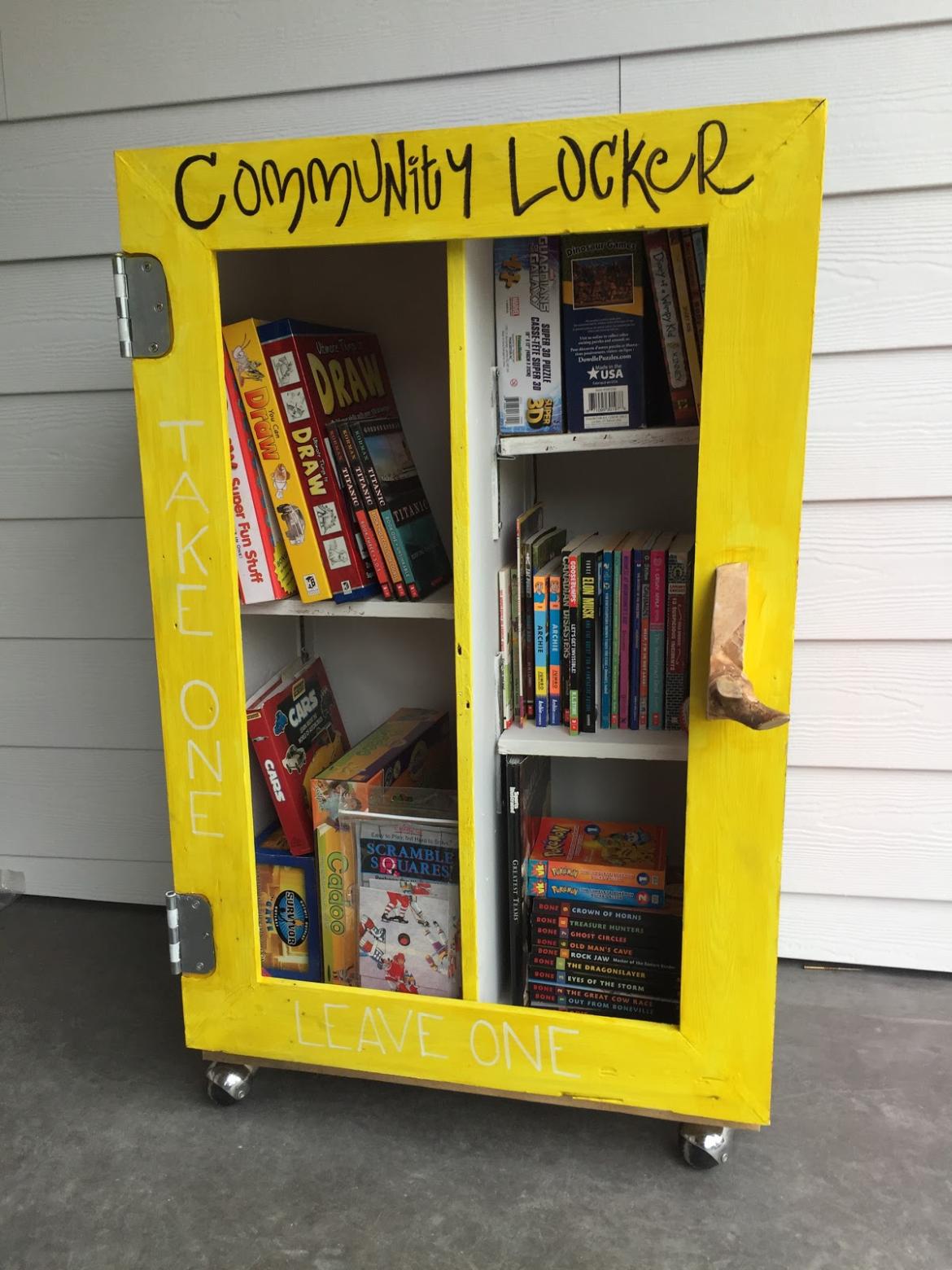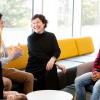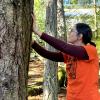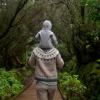
VIU Education students built a Community Locker
November 19, 2019 - 2:30pm
VIU Education program students who are about to become certified teachers, spend their final weeks at University creating or participating in projects that fill a need in local communities.
Preserving a child’s dignity by giving them a suitcase, collecting feminine hygiene products for women in need and creating the curriculum for a local nature centre all have substantial impacts on people, organizations and communities.
Students in the Vancouver Island University (VIU) Bachelor of Education – Post Baccalaureate program spent their final weeks at University developing 14 Community Action Plan (CAP) projects that ranged from collecting gently used winter clothing in the Cardigans Not Climate Change campaign, to bringing Indigenous resources to French Immersion schools, to building a Community Locker for youth loaded with games and toys that can be borrowed.
“The projects are an excellent example of service-based learning that reflect the core values of the VIU Education program,” says David Paterson, VIU Dean of Education. “Students are encouraged to make a difference in the communities where they will be teaching.”
CAP projects are a solution-and-place-based process that involves working collaboratively to make a positive difference in communities by filling a need or desire of a school or organization where the students will be teaching or in their home towns, many on Vancouver Island and Coastal BC.
“The Breaking Barriers semester is about transformation from student to teacher in the community,” says Elisabeth Kroeker, VIU Education Professor. “CAP projects create an awareness of the needs of the community and supports the notion of giving back. Through the projects, the students consult with the community, identify what is needed and what they can do as students to help. When they become certified teachers they often do this with their students.”
The Cases 4 Kids project collected suitcases and backpacks for children in care.
“We were moved by the story of a social worker who always travelled with a spare suitcase in the trunk of her car after witnessing first-hand that many of the children in care in British Columbia were having to carry their personal belongings in garbage bags to their foster homes,” says Education student Jaime Stephens. “Carrying everything around in a plastic bag takes away the children’s dignity when they are already experiencing a difficult situation.”
The students even received toothbrushes and toothpaste from local dental clinics to go along with the cases they collected and delivered the supplies to the ministry to be given out to children in need.
The Cardigans not Climate Change group initiated a winter clothing drive and educational campaign to share the importance of donating and thrifting locally. Their research led them to Thrift Town in Duncan, which supports and supplies multiple charitable organizations in the Cowichan community. Students also volunteered their time at the store to help members of the community in need.
Children aged 9 - 12 years old in Powell River will benefit from a Community Locker, similar to the neighbourhood lending libraries being built in many communities, only this one is stocked with games and toys. The locker was placed at the Oceanview Education Center, which has a youth outreach program.
Several of the CAP projects have the potential to be expanded and continued in the communities where they were implemented.
“The Breaking Barriers program showed students we are not alone in the teaching profession,” adds Stephens. “It allows students to build a network of colleagues to assist them along the way, providing both support and an influx of new ideas.”
-30-
MEDIA CONTACT:
Annette Lucas, Communications Officer, Vancouver Island University
P: 250.741.2020 | C: 250.618.7296 | E: Communications@viu.ca
Tags: Community Engagement | Education | Teaching and Learning






